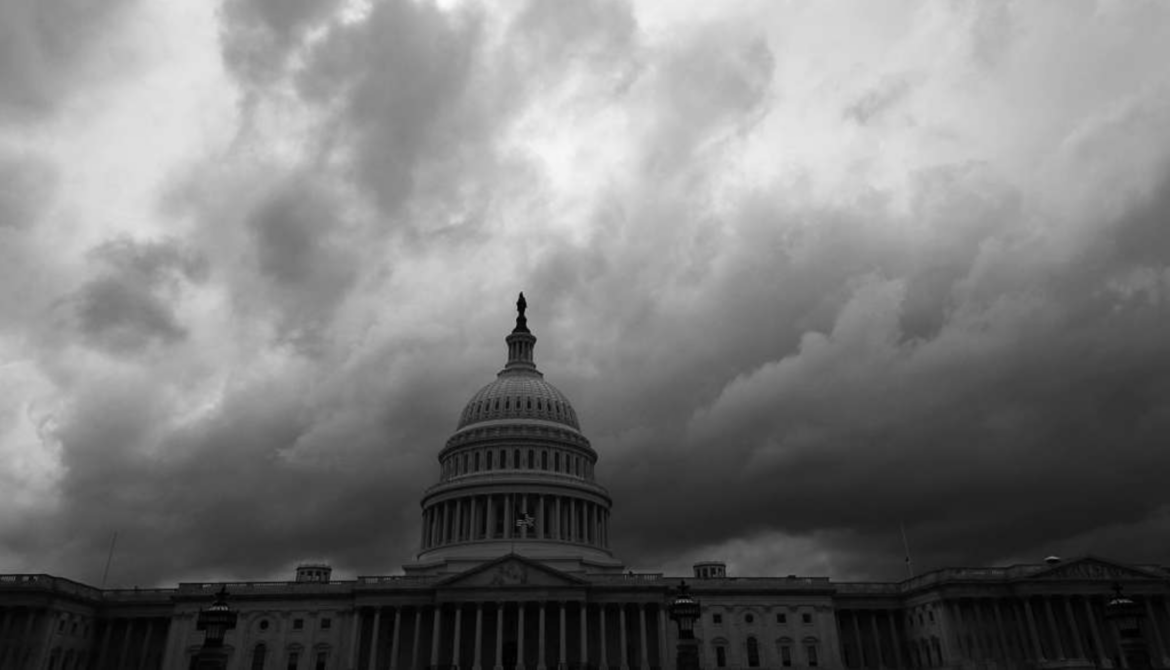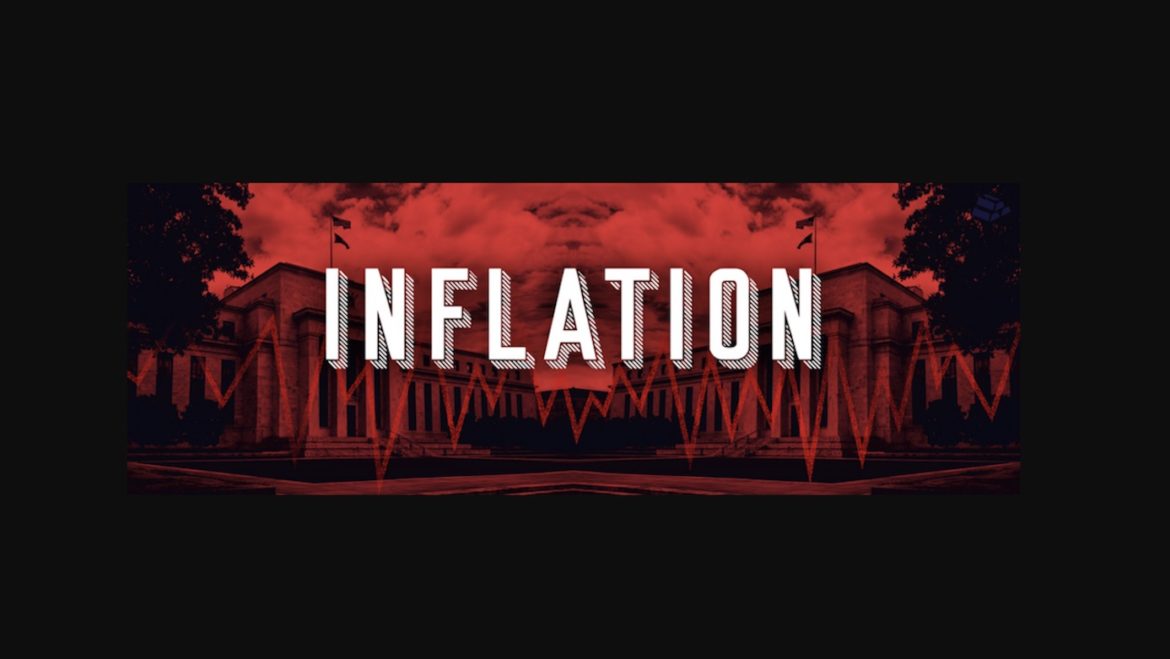Gold has all the potential to go unprecedentedly high. But silver will be gold on
Site:
Precious metals news
Gold prices are rising as softer U.S. inflation data weakens the dollar and lowers Treasury yields, increasing bets against further Fed rate hikes. Spot gold grew 0.6% to $1,957.70 per ounce, while U.S. gold futures went up 0.7% to $1,963.00. This comes after the U.S. CPI showed a slower-than-expected annual rise of 3.2%. The market now fully expects the Fed to keep rates steady in December. Silver also gained, with prices jumping 2.3% to 22.81 per ounce.
What are the biggest investing lessons that Rick Rule and Mike Maloney have learned in their decades of investing?
 The Fed Is Terrified Americans Are Losing Faith That Inflation Will Return to Normal
The Fed Is Terrified Americans Are Losing Faith That Inflation Will Return to NormalNov 14, 2023 - 07:50:27 PST
The Federal Reserve is facing a challenging situation as public confidence in the return to normal inflation wanes. Inflation expectations have hit their highest level since 2011, complicating the Fed's task. If these expectations continue to rise, the Fed may be compelled to further tighten monetary policy, potentially leading to higher interest rates for a prolonged period. This situation could create a deflationary scenario, where persistent high inflation erodes public trust and forces the Fed into more aggressive action, risking a slowdown in economic activity and potential deflationary pressures.
Nov 14, 2023 - 07:25:38 PST
The Federal Reserve's aggressive rate hikes and quantitative tightening have failed to tighten financial conditions, posing a serious risk of persistent inflation. Despite these efforts, financial markets remain surprisingly loose, and consumer spending continues unabated. This ineffectiveness in curbing economic activity raises the specter of a resurgent inflation, potentially forcing the Fed into even more drastic rate hikes. This scenario spells trouble for the economy, as it risks entrenching a prolonged period of high interest rates and financial instability.
After running the third-largest budget deficit in US history in fiscal 2023, the Biden administration kicked off fiscal 2024 with another big budget shortfall.
 Bring on the Rate Cuts? - CPI Unexpected Misses, Core Inflation Lowest In Over 2 Years
Bring on the Rate Cuts? - CPI Unexpected Misses, Core Inflation Lowest In Over 2 YearsNov 14, 2023 - 05:49:58 PST
In October, U.S. inflation slowed more than expected, with the headline Consumer Price Index (CPI) at 3.2% and core CPI at 4.0%, both below forecasts. The month-over-month change was zero, indicating a halt in price increases. This slowdown was largely due to a significant 5.0% drop in gasoline prices. Although food prices rose slightly, the main inflationary pressure remains in housing-related services. Core goods inflation has been negative for five months, signaling a notable shift in inflation trends.
 Treasury Secretary Yellen Says She Disagrees With Moody’s Downgrade on U.S. Debt
Treasury Secretary Yellen Says She Disagrees With Moody’s Downgrade on U.S. DebtNov 14, 2023 - 05:39:28 PST
U.S. Treasury Secretary Janet Yellen has criticized Moody's recent decision to downgrade the U.S. debt outlook from "stable" to "negative." Yellen insists the U.S. economy remains robust, despite concerns about large fiscal deficits and rising interest rates impacting debt sustainability. She emphasizes the Biden administration's commitment to a sustainable fiscal path, including deficit reduction plans. However, the looming threat of a government shutdown and the substantial federal budget deficit, nearly $1.7 trillion in fiscal 2023, highlight the challenges facing the U.S. economy.
Growing speculation suggests the Federal Reserve might cut interest rates soon. With current Treasury yields around 5% and the federal funds rate at 5.25-5.5%, analysts predict the first cut could occur by mid-next year. UBS expects the rate to drop below 3% by the end of next year, and Goldman Sachs sees it falling just below 4%. These cuts may be accelerated by a potential recession and the need to balance rising real interest rates and support economic growth.
Optimism is driving the markets. Most investors seem to believe the economy is strong. The consumer is resilient. Price inflation is easing. And most people think the Federal Reserve is finished hiking rates. In his podcast, Peter Schiff explained why this investor optimism is at odds with reality.
Market expectations of Federal Reserve rate cuts in 2024 might be overly optimistic. Contrary to these predictions, Fed Chair Powell suggests more hikes are likely as the fight against inflation continues. Shrinking monetary supplies contrast with soaring borrowings from the Fed, primarily supporting the banking sector rather than the broader economy. This dynamic suggests persistent inflation, with the private sector shouldering the impact of monetary contraction. If the Fed does cut rates, it could signal a significant slump in demand and deeper economic issues.
Argentina faces a dire economic crisis with inflation hitting over 30-year highs. October saw a 8.3% rise in consumer prices, leading to a staggering 142.7% annual inflation rate. With a presidential election imminent, extreme solutions like dollarization are proposed. Economists predict inflation could spike to 185% by year's end. The country is on the brink of currency devaluation and tough fiscal choices, likely leading to significant GDP contractions in the coming years.
The US faces a potential government shutdown on November 18th due to conflicts over a new short-term funding plan. Hardline conservatives oppose the plan, demanding spending cuts and immigration reforms, complicating its passage before the planned House vote. President Biden hasn't indicated a veto stance, waiting on negotiation outcomes. The plan, lacking key aid components, faces Democratic opposition, and procedural challenges in the House may hinder its progress. Senate Majority Leader Schumer warns against partisan amendments, while Senate Republicans oppose a Democratic alternative, increasing the risk of a shutdown.
From time to time, Peter Schiff hosts Q&A sessions with premium subscribers to his podcast covering a wide range of investing and economic topics. In this video clip, Peter publicly answers eight questions on gold, silver, and general investment strategies.
For the first time in several months, the Consumer Price Index (CPI) came in cooler than expected in October, supercharging expectations that the Federal Reserve can relent on its inflation fight.But is the optimism premature?
 TradeGate Hub Interviews SRSrocco Report: Discusses Why Energy Will Impact Financial & Physical Assets
TradeGate Hub Interviews SRSrocco Report: Discusses Why Energy Will Impact Financial & Physical AssetsNovember 14, 2023
Dale Pinkert from TradeGate Hub interviewed me about Energy, Precious Metals, Miners, and other overall economy. Dale was interested in sharing with his followers why I thought oil was more of a factor for the economy than the Fed and U.S. Treasury printing money...
Some strange things are happening in the precious metals industry. I was quite surprised to see GoldMoney announce its second commercial property purchase when the world is supposedly heading toward economic uncertainty and financial turmoil...
Nov 13, 2023 - 11:35:35 PST
Global silver demand is set to soar in the next decade, with industrial use, jewelry, and silverware driving significant growth. According to Oxford Economics, industrial demand for silver is projected to surge by 46% by 2033, boosted by its expanding role in electrical, electronics, solar energy, and electric vehicles. Jewelry and silverware sectors are also expected to see substantial growth, increasing by 34% and 30%, respectively. Asia, especially China, is anticipated to lead this boom, with India also playing a key role in jewelry and silverware demand. However, shifts in market dynamics and global economic factors could impact these trends.
Amid geopolitical tensions and high prices, Asia's demand for gold remains robust, especially in the festival and wedding season. Despite reaching over US$2,000 an ounce, demand is fueled by cultural significance in countries like India and China. Consumers buy smaller amounts due to the high cost, but the appetite for gold persists, with expectations of further price increases due to global economic uncertainties. In Hong Kong, demand is also strong, influenced by the upcoming Lunar New Year and interest from mainland China and Taiwan.
The US fiscal situation is dire, with rampant deficit spending and excessive money printing leading to economic instability. The shift away from the gold standard and the massive stimulus during the 2008 crisis and COVID-19 pandemic have exacerbated inflation. Central banks are struggling, caught between controlling inflation and supporting government deficits. The US, with its high debt-to-GDP ratio, faces growing skepticism about its financial sustainability. This creates a perfect storm of inflation, debt crisis, and recession. Despite the strong dollar, it's a result of other currencies weakening, not US economic strength. The current trajectory suggests a grim future with potential sovereign defaults and continued high inflation, though history indicates that post-crisis periods can lead to significant reforms and recovery.
Nov 13, 2023 - 11:19:58 PST
The Federal Reserve's focus on fighting inflation overlooks Morgan Stanley's forecast of a significant cut in the Fed Funds rate from 5.50% to 2.375% by 2024. This 215 basis point reduction hints at a potential drop in the 30-year mortgage rate to about 5.50%. While beneficial for homebuyers, this projection aligns with a troubling economic slowdown, including a rise in unemployment to 4.3%, indicating overlooked risks in the Fed's current approach.










